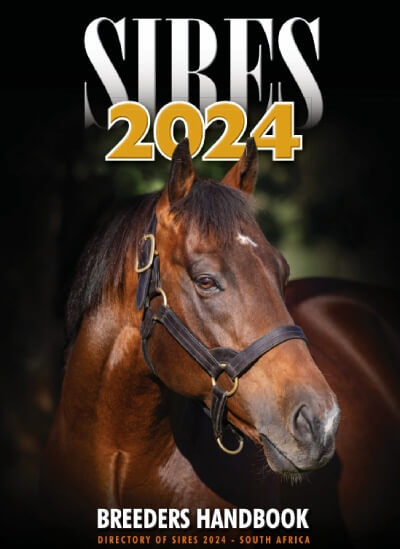
Bill Nader
Bill Nader, the former vice president and chief operating officer of the New York Racing Association, left the organization in 2007 to take on the role of executive director of racing for the Hong Kong Jockey Club. Nader, who will preside over his fifth International Races meeting, this weekend, was gracious enough to take time out of a busy week to respond to a series of questions from the TDN:
TDN: How have you adapted to life in Hong Kong? What are the similarities/differences to life in the U.S.?
BN: Adapting to life in Hong Kong is relatively easy. The majority of the population here speak very good English, and it is easy to fit in. Authentic Chinese food is much different than the American version, and it takes a little time to make the adjustment. There is no such thing as a pu pu platter or a fortune cookie and a set lunch is not a) soup b) chicken, pork or beef and c) American-Chinese fried rice. Steamed fish is popular here and, clearly, the food is much better once you shock the American imitation out of your system. I am learning how to cook with my Susie Wong wok and it is fun because you can get a bit creative and add your own touch to any recipe. Any type of Western cuisine, from McDonald’s to Morton’s is available. Driving an
automobile is a bit of a challenge, as you must learn to deal with roundabouts, heavy traffic and tricky double-white lines that restrict lane-changing on the roads. And, of course, everything is on the other side. Luxury and fashion are always on full display here and it is a lot like New York City, minus Broadway and professional sports.
TDN: What is your favorite thing about Hong Kong?
BN: My favourite thing about Hong Kong is the horse racing, I absolutely love it.
TDN: How often do you make it back to the States?
BN: Not as often as I should. My youngest son gave me a great wake-up call last week and told me that I need to make more of an effort. He gave me a good kick in the ass, so I will be home for Christmas for the first time since 2007. I generally come home for the Breeders’ Cup, though I did miss it this year, but that was a one-off miss. I will try to get back one more time in April to see my Mom, which would also be something new for me. My three kids and I get together for a bit of a family reunion every summer, but this year we might take that show on the road to Turkey and Lebanon.
TDN: What special racing challenges do you face in Hong Kong?
BN: The job is a killer, but I mean that in a good way. My portfolio is huge and the responsibilities mirror that. We license, operate, regulate–the whole enchilada. In business terms, our racing in this small place of 7 million people and 1200 horses is as big or bigger than America. Average wagering is US$135 million per day. In addition, the Jockey Club is a leader in the Asian racing region, and I serve as Chairman of the Asian Pattern Committee. People here work extremely hard and if you do not have passion for your work, you will fail or simply not survive.
TDN: To what do you attribute the popularity of the local racing product?
BN: The racing product here is the complete package. It offers quality as illustrated last season with 19 Hong Kong horses included in the World Thoroughbred Rankings and great depth at the top level. We have quantity with average field size at 12.7 per race and rarely have a single-digit field of runners. We have the highest level of integrity and transparency. And, we have incredible liquidity in our wagering pools, which is the >x= factor in making our offering the best racing and betting product in the world
TDN: Is there anything, in your view, that can be done or changed to increase interest in horse racing in this part of the world?
BN: To change or increase interest in horse racing in America, you first must be open to change and that is the most difficult part. You have to make the racing more attractive. Reducing the number of races, creating
more situations where the good horses come together in competitive races, becoming more customer-centric in strategic thinking, trying to find ways to introduce racing to engage a new audience without using dollar
beers and concerts as the only trigger–these are challenging tasks to influence change and increase interest.
TDN: Some might view the racing in Hong Kong, even at the top handicap and local stakes level, as second rate. How would you address that?
BN: I think that is complete rubbish. Group 3 horses in Europe are imported here and can struggle to win a Class 2 race in Hong Kong and may never make it into our top echelon of races. Hong Kong turf sprinters have
been the best in the world over the last decade. The racing here at every level is anything but second rate. Pound for pound, the racing here is among the best in the world. A Class 1 race in Hong Kong is a Group/Grade 3 race almost anywhere else.
TDN: What local horse or horses have impressed you the most, current or in the past?
BN: Ambitious Dragon is a superstar–the Cup will be a great showdown with Cirrus des Aigles. Silent Witness was arguably the greatest turf sprinter in history when he won 17 in a row, though Australia’s Black Caviar will
now enter that debate as the all-time best. Good Ba Ba, a Keeneland graduate, was the world’s best turf miler during my early days here, and his ability to accelerate when called upon was lethal. Viva Pataca was our version of Forego, the ability to perform at a high level over a long career. He was amazing. [The late] Vengeance Of Rain was great, the list goes on and on.
TDN: The Hong Kong International Races are referred to as the “World Turf Championships”. Do you think that designation is merited?
BN: The designation of “World Turf Championships” fits here for two reasons. We have four Group 1 events at 1200, 1600, 2000 and 2400 [meters], so every distance is covered. We get horses from all over the world, usually between 10 and 12 countries represented.








